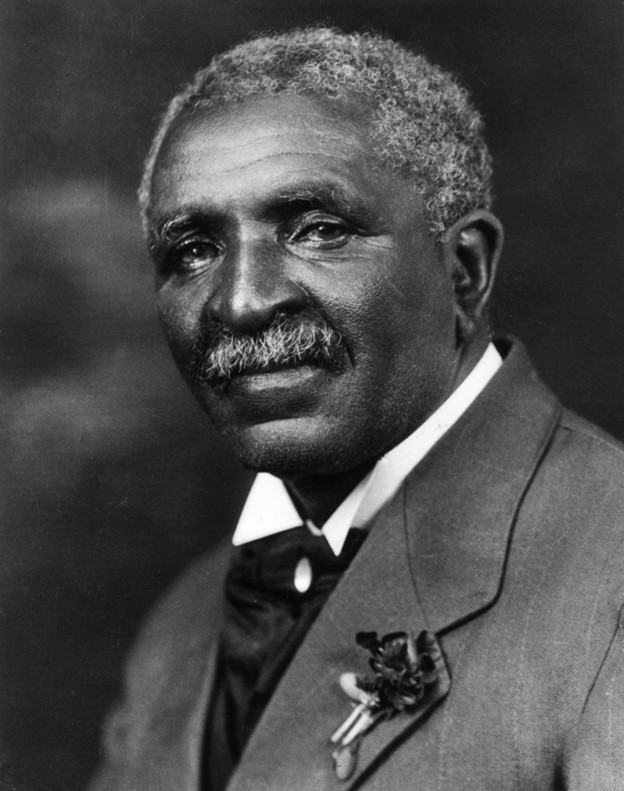
1864 - 1943
George Washington Carver
Agricultural Scientist and Inventor
George Washington Carver (c. 1864 – January 5, 1943) was a pioneering African American scientist, educator, and inventor best known for his work with peanuts, soil conservation, and agricultural innovation. Born into slavery in Diamond, Missouri, during the final years of the Civil War, Carver was orphaned as an infant and raised by his former enslavers, Moses and Susan Carver. Despite early hardships and limited access to formal education, he showed an intense curiosity about nature and a passion for learning. Carver eventually earned a high school diploma and became the first Black student at Iowa State Agricultural College (now Iowa State University), where he studied agricultural science. His groundbreaking research on crop rotation and soil improvement gained the attention of Booker T. Washington, who invited Carver to join the Tuskegee Institute in Alabama in 1896. Carver remained at Tuskegee for over 40 years, dedicating his life to teaching and research. Contrary to popular myth, Carver did not invent peanut butter, but he developed over 300 products from peanuts, including dyes, paints, cosmetics, and even plastics. He also found uses for sweet potatoes, pecans, and other crops. His work encouraged southern farmers, especially Black sharecroppers, to grow alternative crops to cotton, which had depleted the soil. Carver refused to patent most of his discoveries, believing they were gifts from God to be shared freely. He became an international figure, advising presidents like Theodore Roosevelt and collaborating with industrialist Henry Ford. Carver died in 1943, leaving behind a legacy of scientific innovation, environmental stewardship, and humanitarianism. He was posthumously awarded the Spingarn Medal and buried at Tuskegee next to Booker T. Washington. His life remains a symbol of resilience, intellect, and the transformative power of education.
Key Achievements
- Developed over 300 products from peanuts
- Created methods to prevent soil depletion
- Became the first Black student at Iowa State Agricultural College
- Refused to patent most discoveries, believing they were gifts from God